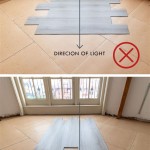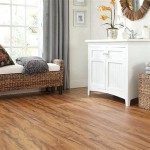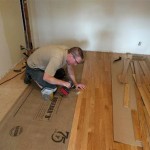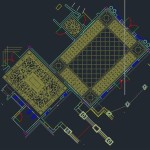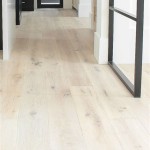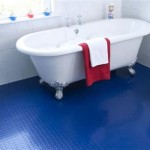Engineered Hardwood Flooring Cost Comparison
Engineered hardwood flooring has become a popular choice for homeowners seeking the aesthetic appeal of solid hardwood without the associated price tag and installation complexities. Understanding the cost factors involved is crucial for making an informed decision. This article provides a comprehensive comparison of the costs associated with engineered hardwood flooring, examining the various elements that impact the overall investment.
The cost of engineered hardwood flooring is multifaceted, encompassing not only the material itself but also installation, underlayment, and potential subfloor preparation. Examining each of these components separately allows for a clearer understanding of the final expense.
Material Costs of Engineered Hardwood
The price of engineered hardwood flooring varies significantly based on several factors, primarily the species of wood used for the veneer, the thickness of the veneer, the core material, the finish, and the brand. Higher-end wood species, such as exotic hardwoods, will command a premium compared to more common options like oak or maple.
The thickness of the veneer, also known as the wear layer, directly impacts the durability and longevity of the flooring. A thicker veneer allows for more refinishing opportunities, extending the life of the floor but also increasing the initial cost. Veneer thicknesses can range from less than 1mm to over 6mm.
The core material of engineered hardwood also plays a crucial role in determining its price and performance. Common core materials include plywood, MDF (Medium Density Fiberboard), and HDF (High Density Fiberboard). Plywood cores generally offer better moisture resistance compared to MDF or HDF, which can make them a more expensive option but a better choice for areas prone to humidity.
The finish applied to the engineered hardwood can also influence the price. Factory-applied finishes, such as aluminum oxide, offer superior durability and scratch resistance compared to site-applied finishes. Specialty finishes, such as hand-scraped or wire-brushed textures, will also add to the cost.
Brand reputation and manufacturing quality also contribute to price variations. Established brands with a proven track record of producing high-quality engineered hardwood floors often command a higher price but typically offer better warranties and customer support.
In terms of actual costs, engineered hardwood flooring materials can range from $3 to $15 or more per square foot. Entry-level options with thinner veneers and less expensive core materials will be on the lower end of the spectrum, while premium products with thicker veneers, exotic wood species, and high-end finishes will be at the higher end.
It's important to factor in waste when calculating the total material cost. Flooring installers typically recommend adding 5-10% to the total square footage to account for cuts and errors during installation.
Installation Costs: Professional vs. DIY
The cost of installing engineered hardwood flooring is another significant factor that can substantially impact the overall project budget. The decision of whether to hire a professional installer or opt for a DIY installation is largely dependent on the homeowner's skill level, available time, and budget.
Professional installation typically ranges from $3 to $8 per square foot, depending on the complexity of the installation, the installer's experience, and the geographic location. Complex installations, such as those involving intricate patterns or working around difficult architectural features, will likely incur higher labor costs.
Hiring a professional installer offers several advantages. Professionals possess the expertise and tools necessary to ensure a proper installation, minimizing the risk of errors that could lead to future problems, such as cupping, gapping, or buckling. They can also provide valuable advice on subfloor preparation and moisture mitigation.
DIY installation can save on labor costs, but it requires a significant investment of time and effort. It also necessitates a thorough understanding of flooring installation techniques and the proper use of tools. Mistakes made during DIY installation can be costly to correct and may void the manufacturer's warranty.
Factors influencing installation costs include the type of installation method (glue-down, nail-down, or click-lock), the condition of the subfloor, and any necessary subfloor preparation. Glue-down installations tend to be more labor-intensive and therefore more expensive than click-lock installations.
Subfloor preparation can add significantly to the installation costs. A level and stable subfloor is essential for a successful engineered hardwood installation. If the subfloor is uneven or damaged, it may need to be leveled with self-leveling compound or repaired with plywood or concrete patching. These repairs can add several dollars per square foot to the overall cost.
When considering DIY installation, it's important to factor in the cost of tools and equipment, such as a flooring saw, tapping block, mallet, and moisture meter. Renting these tools can add to the expense, and purchasing them outright may not be cost-effective if they are only used for a single project.
Underlayment and Subfloor Preparation Expenses
Underlayment is a critical component of an engineered hardwood flooring installation. It serves several purposes, including providing cushioning, reducing noise transmission, and acting as a moisture barrier. The type of underlayment required depends on several factors, including the type of subfloor, the type of engineered hardwood flooring, and any specific requirements for sound insulation or moisture resistance.
The cost of underlayment can range from $0.50 to $3 or more per square foot, depending on the type and thickness of the material. Basic foam underlayment is typically the least expensive option, while specialized underlayments with sound dampening or moisture barrier properties will be more costly.
For concrete subfloors, a moisture barrier is often required to prevent moisture from seeping into the engineered hardwood flooring. This is particularly important in basements or other areas with high moisture levels. Moisture barriers can be incorporated into the underlayment or installed as a separate layer.
As previously mentioned, subfloor preparation is a crucial step in ensuring a successful engineered hardwood installation. A clean, level, and stable subfloor is essential for preventing problems such as cupping, gapping, and unevenness. Subfloor preparation may involve cleaning, leveling, patching, or reinforcing the existing subfloor.
The cost of subfloor preparation can vary widely depending on the condition of the existing subfloor. Minor imperfections can often be addressed with self-leveling compound, which typically costs $1 to $3 per square foot. More extensive damage may require patching with concrete or plywood, which can cost $3 to $5 or more per square foot.
In some cases, it may be necessary to replace the entire subfloor. This is a more significant undertaking that can add substantially to the overall cost of the project. The cost of replacing a subfloor can range from $5 to $10 or more per square foot, depending on the materials used and the complexity of the job.
Homeowners should obtain a professional assessment of their subfloor to determine the necessary preparation steps and associated costs. Addressing subfloor issues proactively can prevent costly problems down the road and ensure a long-lasting engineered hardwood floor installation.
Beyond the core elements of materials, installation, and subfloor, homeowners should account for additional expenses. These can include the cost of removing existing flooring, disposing of old materials, purchasing transition strips for doorways and thresholds, and baseboards or quarter-round molding to conceal the perimeter gap between the flooring and the wall. These costs, while seemingly small, can add up and should be factored into the overall budget.
Furthermore, specific project requirements can influence costs. Complex layouts, rooms with unusual shapes, or the need for custom cuts can increase both material waste and installation time, leading to higher overall expenses. It is beneficial to obtain detailed quotes from multiple contractors, ensuring that all aspects of the project are covered explicitly.
Ultimately, the cost of engineered hardwood flooring is determined by a confluence of factors. Careful consideration of material selection, installation method, subfloor condition, and peripheral expenses will empower homeowners to make informed decisions and achieve their desired aesthetic within their budget. Proactive planning and detailed research will help ensure a successful and satisfying flooring project.

Hardwood Vs Engineered Wood Flooring Which Is Best For You Forbes Home

Average Hardwood Flooring S In 2024 Forbes Home

Engineered Flooring Vs Laminate Everything You Need To Know Forbes Home

How Much Should Wooden Flooring Cost In 2024 Checkatrade

Engineered Hardwood Vs Laminate

Tile Vs Wood Flooring Major Differences Pros Cons And Costs Forbes Home

How Much Does Hardwood Flooring Cost 2024 Guide

Hardwood Vs Laminate Engineered Floors What S The Difference Clean My Space

Best Engineered Wood Flooring Options Forbes Home

How Much Does Hardwood Flooring Cost 2024 Guide
Related Posts

